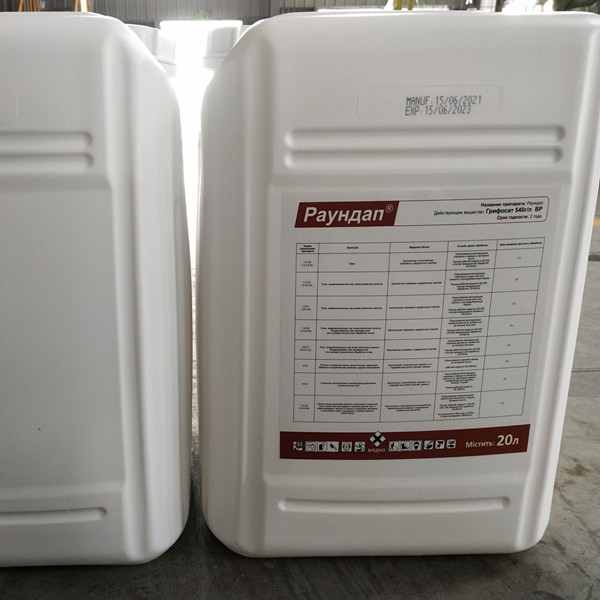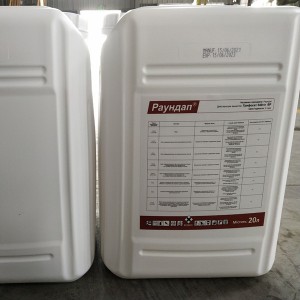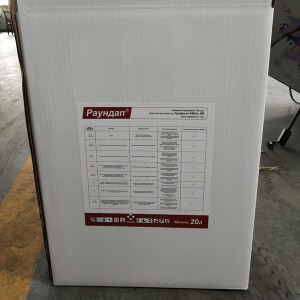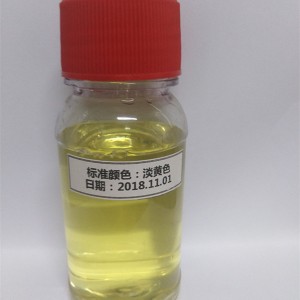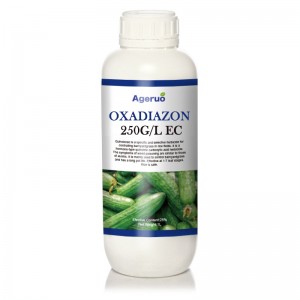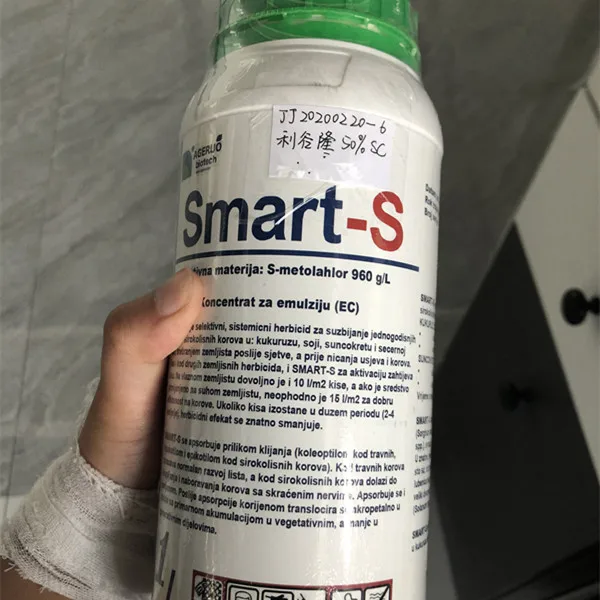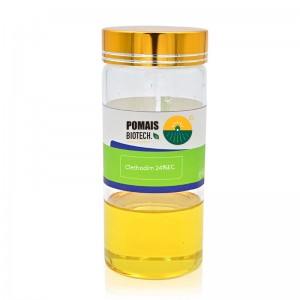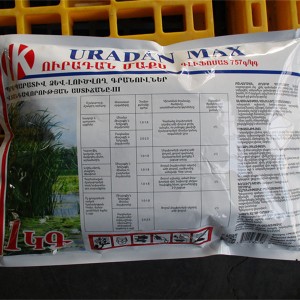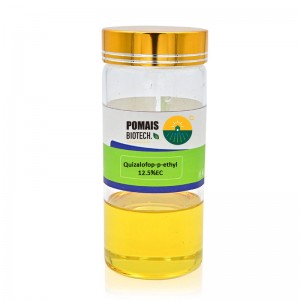Products
Agriculture Organic Pesticide High-Quality Liquid Weed Herbicide Glyphosate 540g/L SL
Introduction
| Active ingredients | Glyphosate |
| CAS Number | 1071-83-6 |
| Molecular Formula | C3H8NO5P |
| Classification | Herbicide |
| Brand Name | POMAIS |
| Shelf life | 2 Years |
| Purity | 540g/L |
| State | Liquid |
| Label | Customized |
| Formulations | 360g/l SL, 480g/l SL,540g/l SL ,75.7%WDG |
Package

Mode of Action
Glyphosate mainly inhibits the enol acetone shikimin phosphate synthase in plants, thereby inhibiting the conversion of shikimin to phenylalanine, tyrosine and tryptophan, interfering with protein synthesis and causing plant death. Glyphosate is transmitted to various parts of plants through absorption of stems and leaves, and can prevent and kill more than 40 families of plants, such as monocotyledons and dicotyledons, annual and perennial, herbs and shrubs.
Suitable crops:

Act on these Pests:

Using Method
| Crops | Prevent weeds | Dosage | Method |
| Non-cultivated land | Annual Weeds | 2250-4500ml/ha | Spray on stems and leaves |
FAQ
Can you painting our logo?
Yes, Customized logo is available.We have professional designer.
Can you deliver on time?
We supply goods according to the date of delivery on time,7-10 days for samples; 30-40 days for batch goods.
Why Choose US
We cooperate with customers all over the world, ans provide pesticide registration support.
Professional sales team serve you around the whole order and provide rationalization suggestions for your cooperation with us.
Optimal shipping routes selection to ensure delivery time and save your shipping cost.

